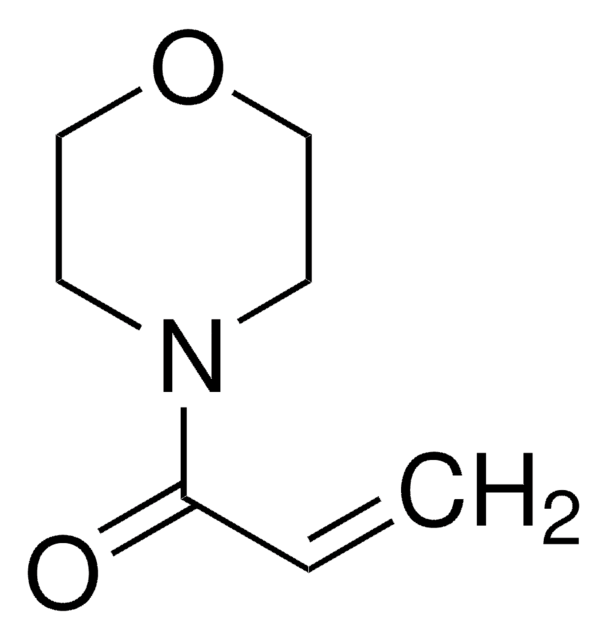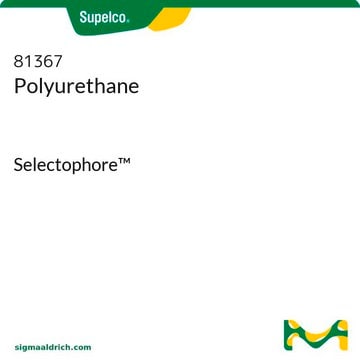755885
Urethane acrylate methacrylate resin
Synonym(s):
MAU, U-835
Sign Into View Organizational & Contract Pricing
All Photos(1)
About This Item
UNSPSC Code:
12162002
NACRES:
NA.23
Recommended Products
form
liquid
Quality Level
refractive index
n20/D 1.487
viscosity
3,000 cP(25 °C)
density
0.995 g/mL at 25 °C
storage temp.
2-8°C
General description
Urethane acrylate methacrylate resin (UDMA) is formed by reacting 2,4,4-trimethylhexamethylene diisocyanate and 2-hydroxyethyl methacrylate (HEMA). It is mainly used as a dental resin with a higher water uptake than that of bisphenol A-glycidyl methacrylate (Bis-GMA).
Application
UDMA may be combined with triethylene glycol dimethacrylate (TEGDMA) as a resin to develop composite blocks, which can be used for dental computer aided design applications. It may also be used to decrease the water sorption and increase the mechanical strength of the dental composites.
Signal Word
Warning
Hazard Statements
Precautionary Statements
Hazard Classifications
Acute Tox. 4 Dermal - Acute Tox. 4 Oral - Eye Irrit. 2 - Skin Irrit. 2 - STOT SE 3
Target Organs
Respiratory system
Storage Class Code
10 - Combustible liquids
WGK
WGK 3
Flash Point(F)
>399.2 °F
Flash Point(C)
> 204 °C
Certificates of Analysis (COA)
Search for Certificates of Analysis (COA) by entering the products Lot/Batch Number. Lot and Batch Numbers can be found on a product’s label following the words ‘Lot’ or ‘Batch’.
Already Own This Product?
Find documentation for the products that you have recently purchased in the Document Library.
Customers Also Viewed
Properties of experimental urethane dimethacrylate-based dental resin composite blocks obtained via thermo-polymerization under high pressure.
Nguyen J, et al.
Dental Materials : Official Publication of the Academy of Dental Materials, 29(5), 535-541 (2013)
Synthesis and evaluation of modified urethane dimethacrylate resins with reduced water sorption and solubility.
Kerby RE, et al.
Dental Materials : Official Publication of the Academy of Dental Materials, 25(3), 302-313 (2009)
Water ageing of urethane dimethacrylate networks.
Pomes B, et al.
Polymer Degradation and Stability, 29(5), 535-541 (2018)
Our team of scientists has experience in all areas of research including Life Science, Material Science, Chemical Synthesis, Chromatography, Analytical and many others.
Contact Technical Service






![2-[[(Butylamino)carbonyl]oxy]ethyl acrylate](/deepweb/assets/sigmaaldrich/product/structures/603/008/4241c20d-94e8-474e-b3ff-6c4d5be67e9d/640/4241c20d-94e8-474e-b3ff-6c4d5be67e9d.png)




